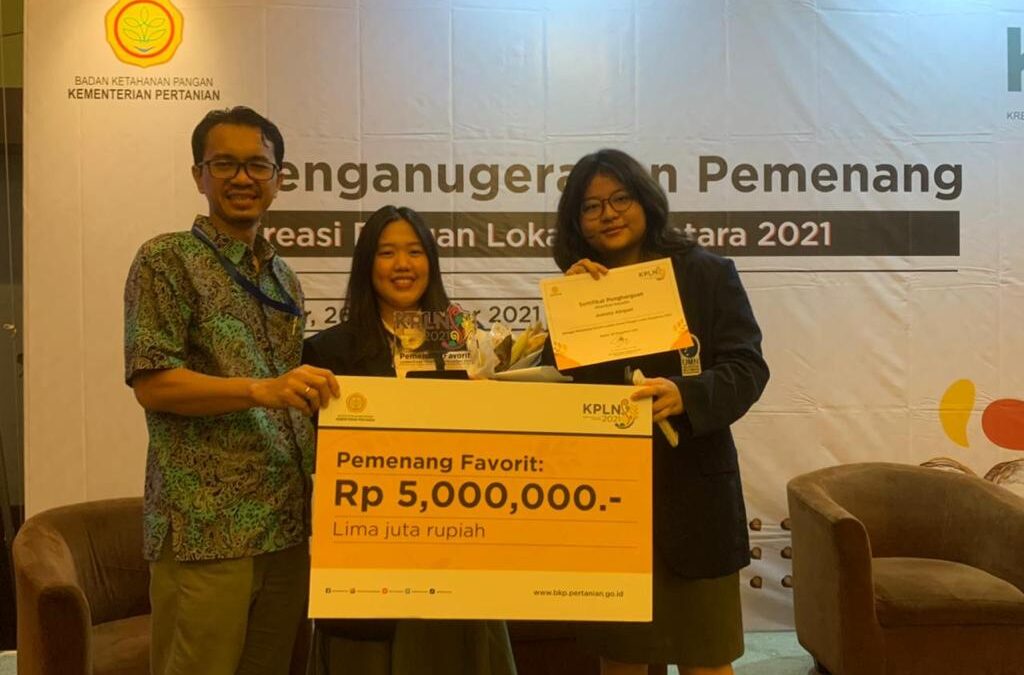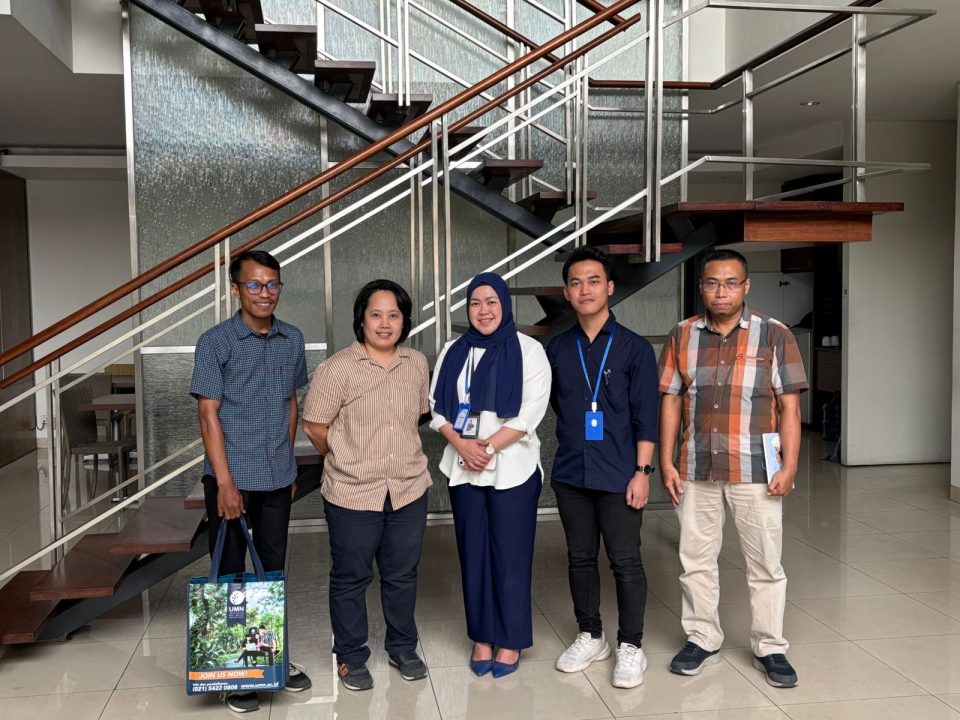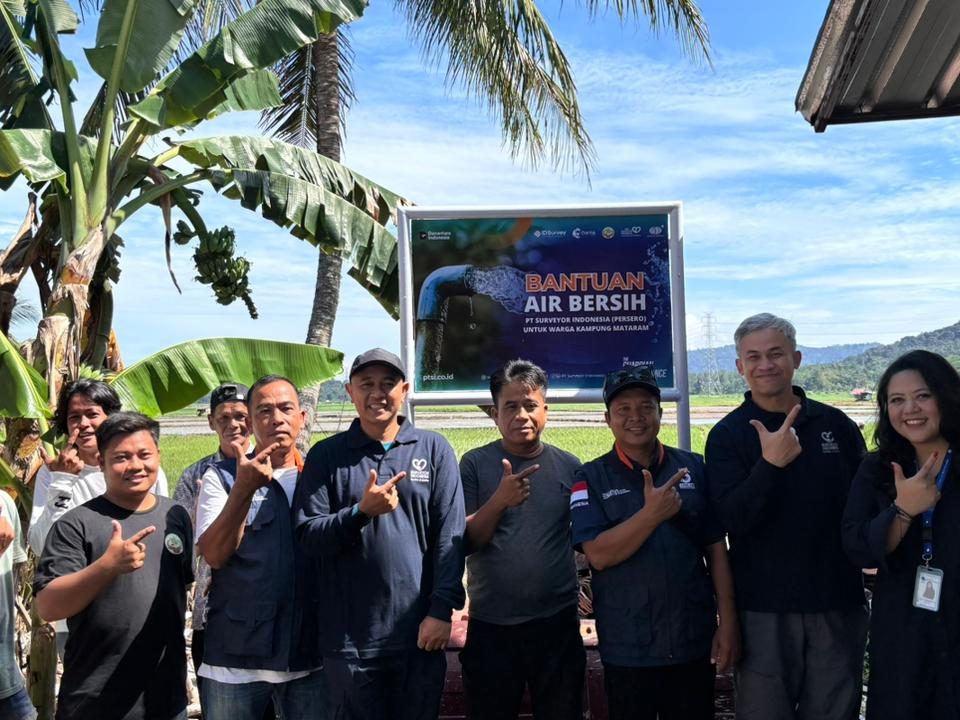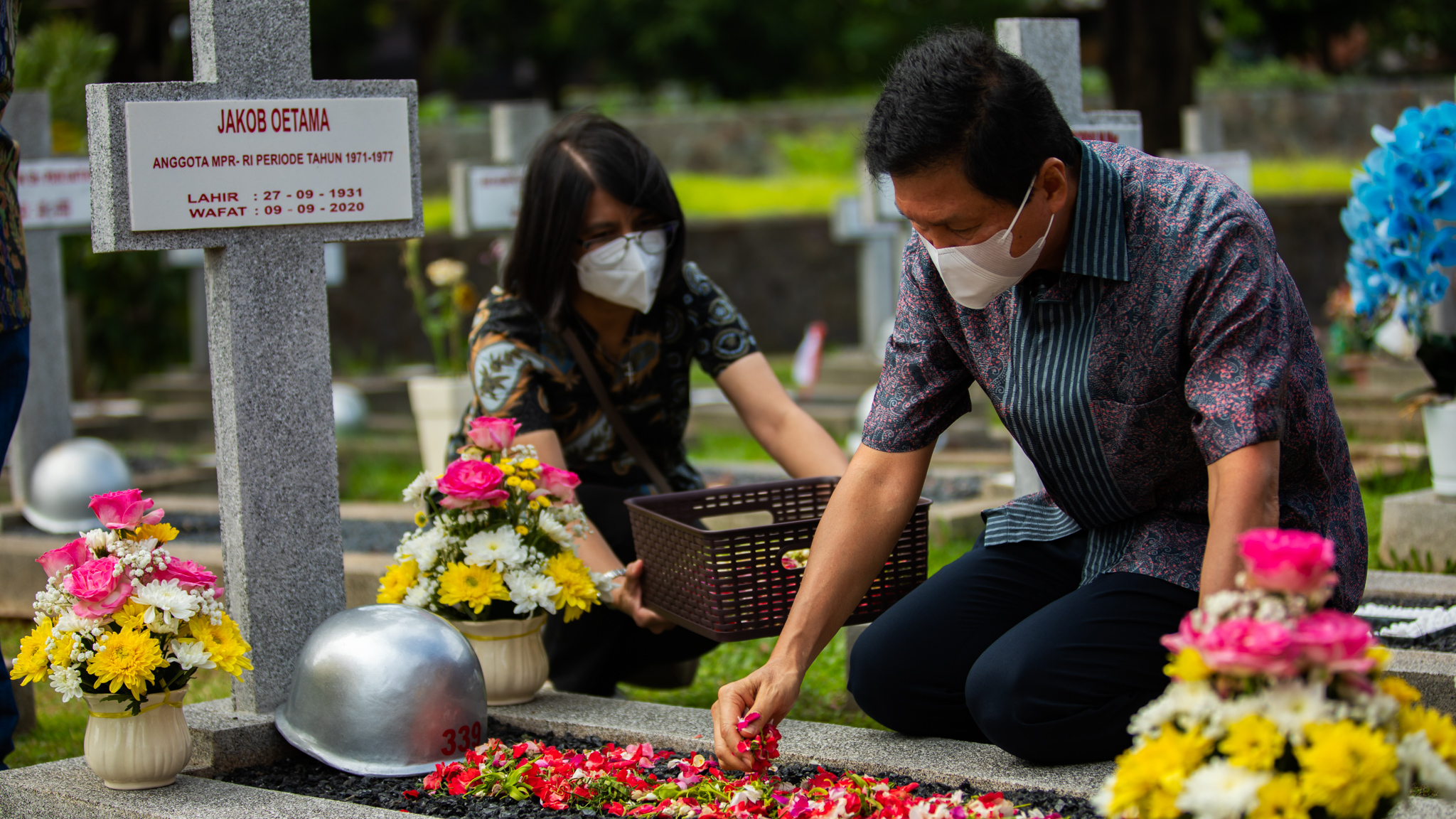
Keluarga Besar Yayasan Multimedia Nusantara Ziarah ke Makam Jakob Oetama untuk Peringati Dies Natalis ke-15 UMN
December 3, 2021
Mahasiswa NON IT Juga Pelu Skill Analisa Lho, Yuk Simak Tipsnya Versi DQLab UMN
December 7, 2021
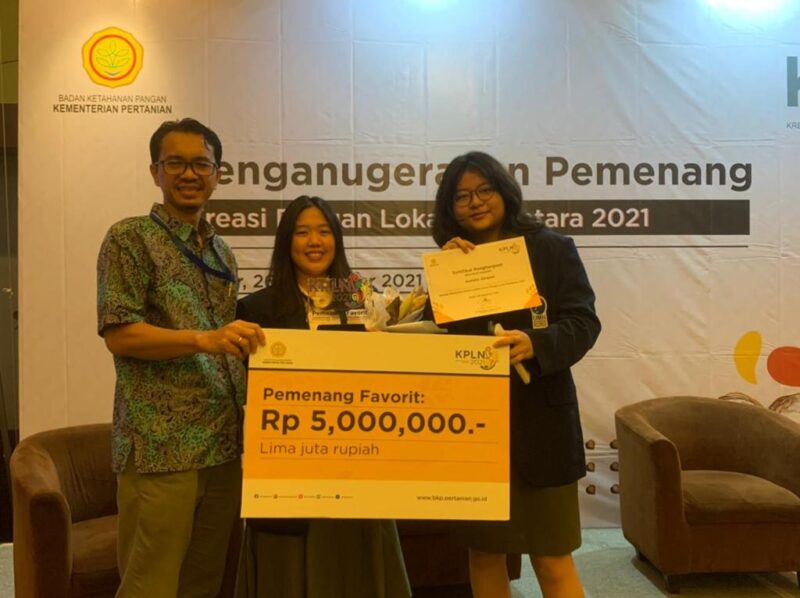
Ketua Prodi Perhotelan UMN, Oqke Prawira (kiri) bersama mahasiswa Perhotelan UMN, Juaneta Abigail (kanan) dan Darlene Calista Wijaya (tengah) (dok. UMN)
TANGERANG – Juaneta Abigail (Class of 2021, UMN Hospitality Program) and Darlene Calista Wijaya (Class of 2021, UMN Hospitality Program) managed to become the favorite winners in the “Local Archipelago Food Creation” competition on Friday (11/26/21). The competition, organized by the Indonesian Ministry of Agriculture, aims to socialize the existence and encourage the younger generation’s creativity in processing local food ingredients.
This competition was participated by around 100 students who are domiciled in Jakarta. Participants were asked to make processed products from native Indonesian plants such as sago, sweet potato, corn, sorghum, taro, and others through this competition.
With that, Juaneta and Darlene decided to serve “Sorgum Hitam, Udang Asam Garam, dan Tebu Kari Hijau” in this competition. They chose sorghum as the main ingredient in this menu because it has a unique character that resembles rice.
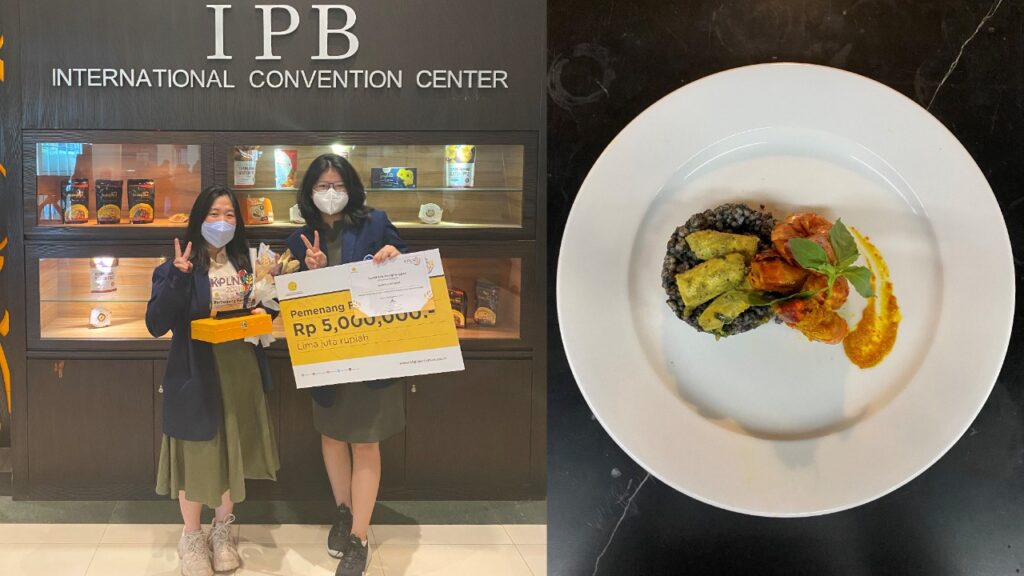
Juaneta Abigail dan Darlene Calista Wijaya menang juara favorit untuk menu “Sorgum Hitam, Udang Asam Garam, dan Tebu Kari Hijau” (dok. Juaneta Abigail)
“The main attraction of our cuisine is the use of local food and ingredients. Here, we use sorghum, one of the local foods that substitute carbohydrates. And also telur tebu (a species of sugarcane), one of the local ingredients that we rarely find,” said Juaneta.
Juaneta shared that UMN’s Hospitality Study Program lecturers assisted the preparation for this competition. He said that to produce the best sorghum. During processing, they had to focus on the sorghum’s texture, taste, and appearance. Oqke Prawira, the Head of UMN’s Hospitality Study Program, also shared that the students had to modify the protein and vegetable dish to compliment the menu.
Also read Webinar Perhotelan UMN: Persiapan Menjadi Hotelier di Era Disrupsi
“So in the end, we get a balanced composition in one plate of food that everyone, especially millennials, can enjoy,” said Oqke.
Oqke hopes that this accomplishment serves as a motivation for other UMN Hospitality students to express their ideas and show their techniques in food processing. According to him, competition can be a way to increase students’ experience and self-development.
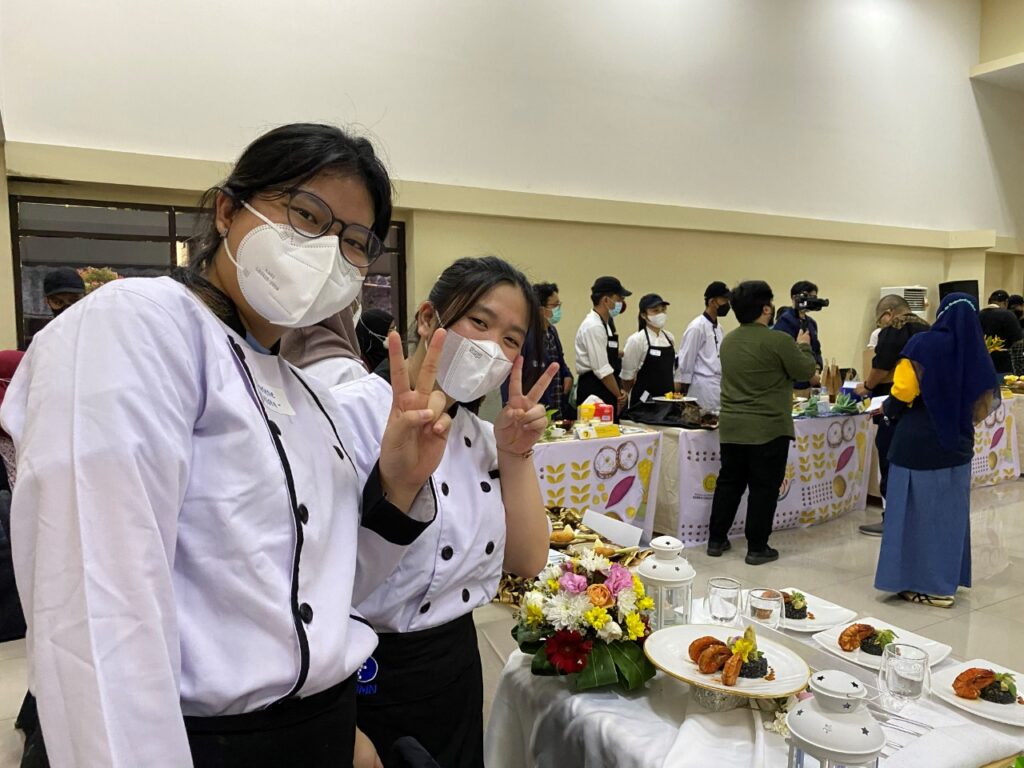
Juaneta Abigail dan Darlene Calista Wijaya saat sesi penjurian (dok. Juaneta Abigail)
Oqke added that UMN’s Hospitality Study Program has perks in the “Food Production” course regarding food processing. This course teaches the basic principles of food processing following international standards referring to the food-service industry.
“Students will learn the details of food processing from basic, intermediate to advanced levels. The learning aims of this course is expected to help master food processing techniques that can be useful for students, whether they choose a job as a professional or become an entrepreneur in the food-service industry,” said Oqke.
by Melinda Chang | UMN News Service
Studying in Jakarta for the study programs of Informatics | Information System | Computer Engineering | Electrical Engineering | Engineering Physics | Accounting | Management | Strategic Communication | Journalism | Visual Communication Design | Movies and Animation | Architecture | D3 Hospitality | International Program, di Universitas Multimedia Nusantara. www.umn.ac.id

